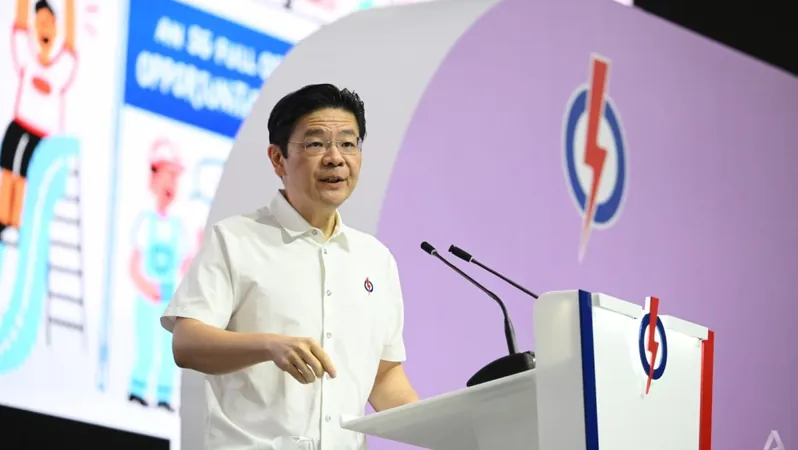
Fired for Napping: How One Man’s Legal Victory is Sparking a National Conversation in China
2024-11-26
Author: Li
Fired for Napping: How One Man’s Legal Victory is Sparking a National Conversation in China
In an unprecedented case, a man from Taixing, Jiangsu province, China, has won a legal battle against his former employer after being dismissed for taking a short nap at work. Zhang, who had dedicated 20 years as a department manager at a chemical company, received a compensation amounting to 350,000 yuan (approximately $48,000) following his dismissal earlier this year.
The incident that led to Zhang’s firing occurred after he worked late on a project, staying in the office until midnight. Surveillance footage captured him taking a brief nap at his desk the next morning, which the company’s HR department later cited as grounds for termination. They accused him of 'sleeping on the job due to exhaustion.' Although Zhang initially signed the report, he felt the decision was unwarranted and opted to seek legal recourse.
In court, the judge ruled in favor of Zhang, stating that while employers do hold the right to terminate employees for rule-breaking, the circumstances surrounding each case must be considered. This was noteworthy in Zhang’s situation, as it was a first-time offense that did not negatively impact the company’s operations. The judge stressed that a two-decade-long exemplary career should not be overshadowed by a moment of fatigue.
This ruling has ignited a fiery debate across Chinese social media platforms, with many users voicing their opinions on workplace norms. Some expressed astonishment at the sizeable compensation, with comments like, 'Waking up to 350,000 yuan in your account—what kind of luck is that?' Others believed firing someone for such a trivial reason was excessively harsh, creating a dialogue about the evolving perceptions of work culture in China, particularly in stressful corporate environments.
Furthermore, this case shines a light on the increasing discourse regarding employee welfare versus corporate policies. As many workers struggle with job pressures and long hours, the case of Zhang may pave the way for more discussions about reasonable workplace expectations and the right to rest without fear of punishment.
What does this mean for the future of workplace policies in China? As more employees see the value of advocating for their rights, organizations may need to reevaluate their disciplinary practices in light of this landmark ruling.




 Brasil (PT)
Brasil (PT)
 Canada (EN)
Canada (EN)
 Chile (ES)
Chile (ES)
 España (ES)
España (ES)
 France (FR)
France (FR)
 Hong Kong (EN)
Hong Kong (EN)
 Italia (IT)
Italia (IT)
 日本 (JA)
日本 (JA)
 Magyarország (HU)
Magyarország (HU)
 Norge (NO)
Norge (NO)
 Polska (PL)
Polska (PL)
 Schweiz (DE)
Schweiz (DE)
 Singapore (EN)
Singapore (EN)
 Sverige (SV)
Sverige (SV)
 Suomi (FI)
Suomi (FI)
 Türkiye (TR)
Türkiye (TR)